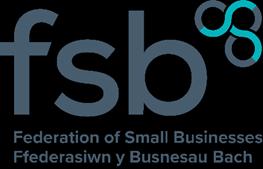

Change in Workplace Recycling
FSB Wales Brief
March 2024
About FSB
Celebrating its 50th anniversary, FSB Wales is the authoritative voice of businesses in Wales. It campaigns for a better social, political, and economic environment in which to work and do business. With a strong grassroots structure, a Wales Policy Unit, and dedicated Welsh staff to deal with Welsh institutions, media and politicians, FSB Wales makes its members’ voices heard at the heart of the decision-making process.
From April 6th, 2024, the Welsh Government is introducing new legislation which aims to improve the quality and quantity of how waste is collected and separated in Wales.
These new laws will apply to all businesses, charities, and public sector organisations. It also applies to all waste and recycling collectors and processors who manage household-like waste from workplaces. Why the law is being introduced and the benefits.
Wales is currently third in the world when it comes to recycling waste from households. The recycling rate of waste material collected by our local authorities is currently at just over 65% and helps save around 400,000 tonnes of carbon emissions each year.
The aim is to build on the success of household recycling and ensure high recycling rates across workplaces too. The benefits of increasing recycling are that it:
• increases the amount and quality of recycling that can then be used by Welsh manufacturers
• supports workplaces to reduce their waste
• reduces carbon emissions
• helps the economy to create a greener Wales
What is the new law?
Workplaces will need to separate the materials listed below for recycling. Workplaces will also need to arrange for the waste to be collected separately from other waste.
• paper and card
• glass
• metal, plastic, and cartons and other similar packaging (for example coffee cups)
• food – only for premises that produce more than 5kg of food waste a week
• unsold small waste electrical and electronic equipment (sWEEE)
• unsold textiles
Putting all your waste into a single bin will not be allowed if any of these materials are in there.
Each group of materials must be kept separate from each other. For example, glass must be collected on its own, but workplaces can collect metal, plastic and cartons together in the same container.
Before putting items in the recycling bins think about whether you can reuse them for something else.
What waste needs to be separated?
The following materials will need to be separated for collection, and collected separately:
• Food
• Paper and card
• Glass
• Metal, plastic and cartons
• Unsold textiles
• Unsold small waste electrical and electronic equipment (sWEEE)
There will also be a ban on:
• Sending food waste to sewer (any amount)
• Separately collected waste going to incineration and landfill
• All wood waste going to landfill
• You can mix paper and card together in the same container, and you can mix metal, plastic, and cartons together.
For workplaces that produce and handle food waste.
The law to separate and recycle food waste applies to any premises that produce over 5kg of food waste per week, such as:
• hotels
• restaurants
• cafés
• takeaways
• catering businesses (including those at events such as food stalls),
• shopping centre food courts
• canteens
• pubs
• offices with canteens, cafes or staff kitchen facilities
• schools, colleges, prisons, nursing homes and hospitals
• any other workplaces that serve food
If you produce any food waste you will not be allowed to put it down the sink, or drain into a public drain or sewer.
This includes using macerators (or similar technologies such as enzyme digestors or de-waterers) to get rid of food waste down the sink to a drain or sewer. Macerators don’t need to be removed, but you may choose to remove them to prevent staff using them.
Help to manage your food waste.
There's information on how to manage your food waste that may help your workplace.
Try searching online for:
• Guardians of Grub
• WRAP Food Waste Reduction Roadmap Toolkit
How the law will be enforced?
Natural Resources Wales (NRW) is responsible for making sure that materials are being separated and collected correctly, and that the ban on recycling going to incineration and landfill is being followed.
Local authorities are responsible for making sure the ban on food waste going to sewer is followed.
If you do not comply with the law, it could mean a fine for your workplace.
Who is responsible for following the new law?
All workplaces in Wales will be required to follow the new law. The business, public body or third sector organisation may own the premises, they may lease or rent it, or temporarily occupy it.
It is the occupiers of a workplace who must ensure recycling is separated for collection. If multiple workplaces are in a shared location, each individual organisation is responsible but may need to agree with the landlord or facilities manager if a central recycling system is needed.
Further support and guidance
WRAP (the Waste and Resources Action Programme) and the Welsh Government will be providing more information between now and April 2024 to help you get ready.
This will include:
• Examples of how other workplaces are already recycling in this way.
• Guides for certain types of workplaces with more detail about how to get ready including:
• Hospitality and food services
• Retail
• Small and medium size businesses (SMEs)
• Education settings and universities
• Residential settings (including care homes)
• Outdoor events (for example festivals)
• Entertainment and leisure facilities (including campsites, chalets, lodges, hotels, caravans)
• Online webinars.
• Downloadable communication resources, for example bin signs and posters to use in your workplace.
Further information can be found on workplace recycling including the Code of Practice which gives you more detailed information about the changes.
